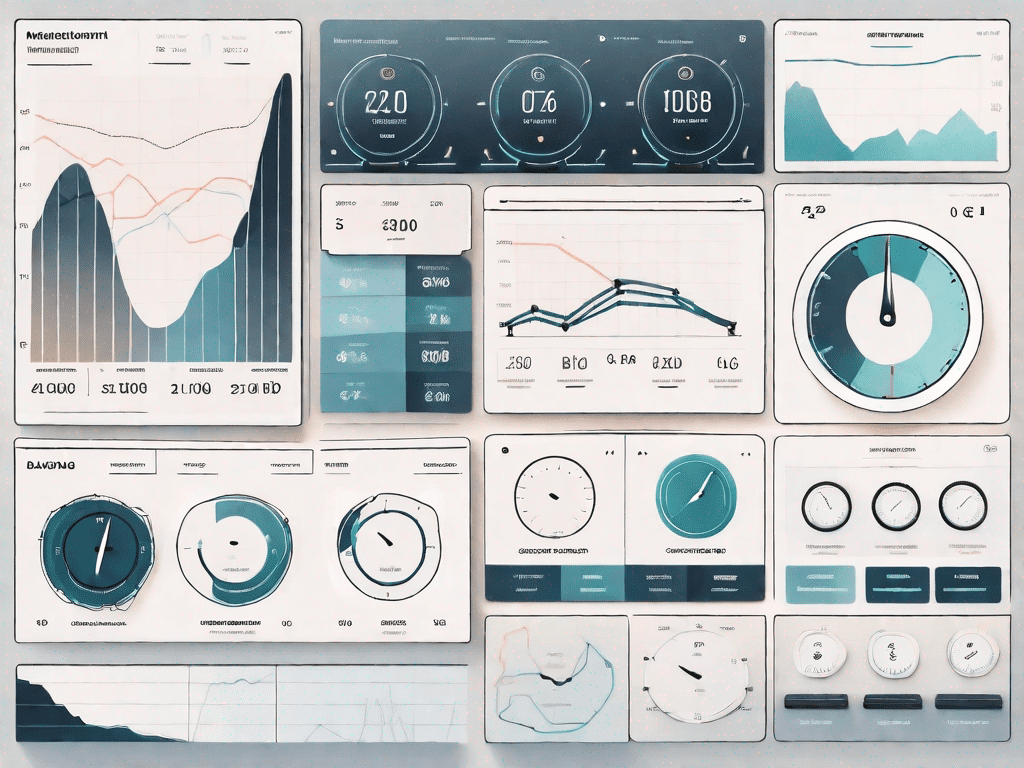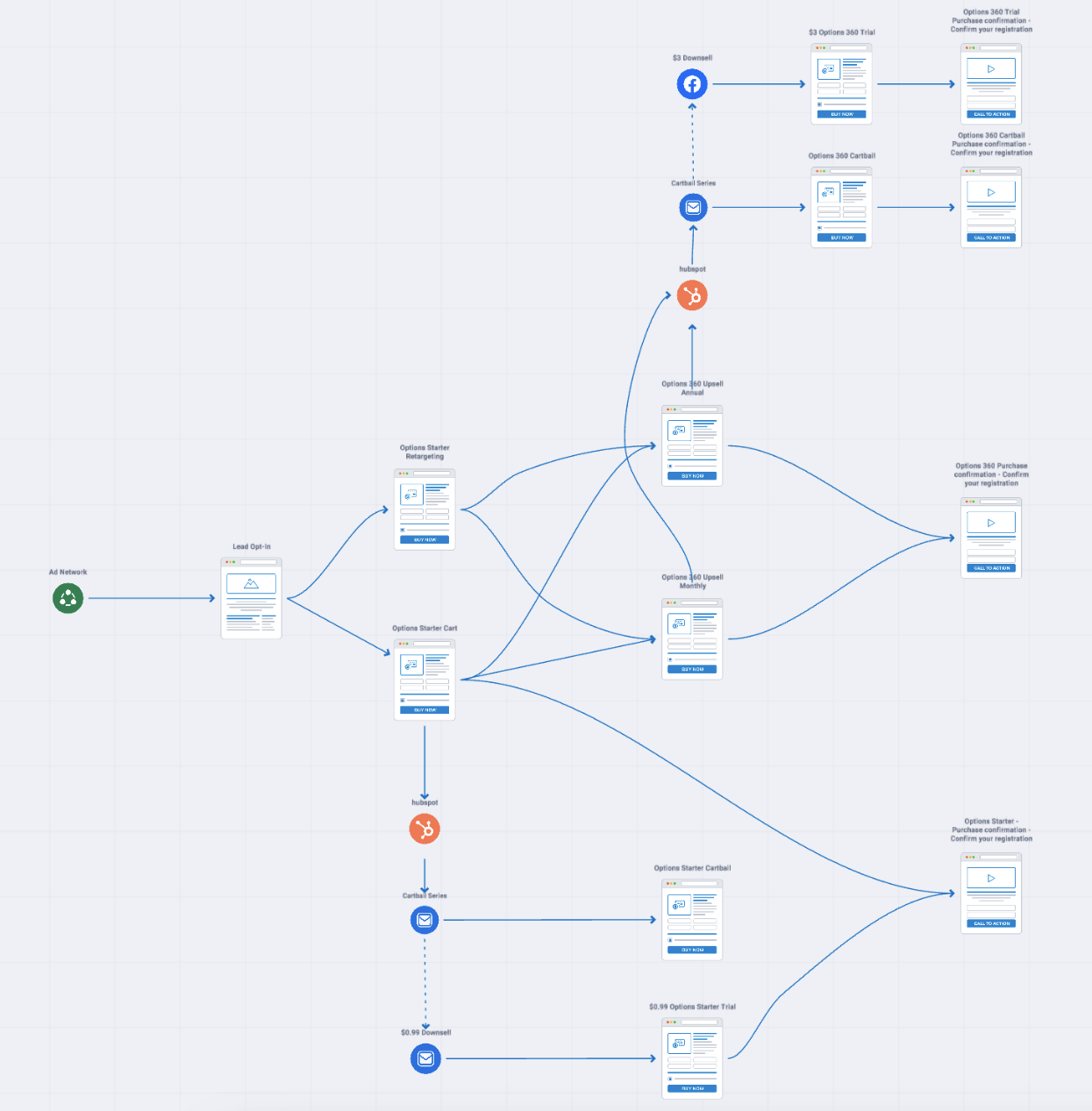In the ever-evolving landscape of digital marketing, pay-per-click (PPC) advertising has become a powerful tool for businesses to reach their target audience. However, simply running PPC campaigns is not enough. Marketers need to understand the importance of PPC analytics and the role it plays in driving marketing success. By tracking key performance indicators (KPIs) and analyzing PPC reports, marketers can gain valuable insights that inform their strategies and decision-making processes.
Understanding the Importance of PPC Analytics
PPC advertising has revolutionized the way businesses promote their products and services online. Unlike traditional advertising methods, PPC allows marketers to only pay when someone clicks on their ads, thus maximizing their return on investment (ROI). By leveraging data and analytics, marketers can make informed decisions to optimize their PPC campaigns and achieve their marketing goals.
The Role of PPC in Digital Marketing
PPC is a crucial component of the broader digital marketing landscape. It is a method of paid advertising where businesses bid on keywords relevant to their products or services. When a user searches for these keywords, the search engine displays ads from advertisers who have bid on those keywords. This targeted approach enables businesses to reach their desired audience and drive traffic to their websites or landing pages.
Furthermore, PPC offers a level of control and flexibility that traditional advertising methods lack. Marketers can set their own budget, adjust bids based on performance, and target specific demographics or geographic locations. This level of customization allows businesses to tailor their campaigns to their target audience and maximize their reach.
Moreover, PPC complements other digital marketing strategies such as search engine optimization (SEO) and social media marketing. While SEO focuses on organic search results, PPC provides immediate visibility and can generate instant traffic. By combining these strategies, businesses can create a comprehensive digital marketing plan that covers both long-term growth and short-term results.
Why PPC Analytics Matter
PPC analytics provide marketers with valuable insights into the performance and effectiveness of their campaigns. By analyzing data such as click-through rates, conversion rates, and cost per click, marketers can gauge the success of their ads and identify areas for improvement.
For instance, by tracking click-through rates, marketers can determine how well their ads are resonating with their target audience. A low click-through rate may indicate that the ad copy or creative needs to be revised to better capture the attention of users. On the other hand, a high click-through rate suggests that the ad is compelling and engaging, driving users to take action.
Conversion rates are another crucial metric that PPC analytics can provide insights on. By tracking the number of conversions generated from PPC campaigns, marketers can assess the effectiveness of their landing pages and calls-to-action. This data can help them optimize their landing pages, improve user experience, and ultimately increase their conversion rates.
Cost per click is yet another important metric that PPC analytics can shed light on. By analyzing this data, marketers can determine the cost-effectiveness of their campaigns and make informed decisions about their budget allocation. If certain keywords or ad placements are driving high costs per click without generating significant results, marketers can adjust their strategy accordingly to optimize their ROI.
In conclusion, PPC analytics play a vital role in helping marketers understand the performance of their campaigns and make data-driven decisions. By leveraging these insights, marketers can continuously optimize their PPC campaigns, improve their ROI, and achieve their marketing goals.
Key Performance Indicators (KPIs) in PPC Analytics
When it comes to PPC analytics, tracking the right KPIs is essential for measuring the success of campaigns. KPIs are quantifiable metrics that indicate how well marketers are achieving their objectives. By setting and monitoring relevant KPIs, marketers can track their progress and make data-driven decisions to optimize their campaigns.
PPC, or pay-per-click, advertising is a popular digital marketing strategy that allows advertisers to display their ads on search engine results pages and other online platforms. With PPC, advertisers only pay when someone clicks on their ad, making it a cost-effective way to reach a targeted audience.
However, running a successful PPC campaign requires more than just setting up ads and waiting for clicks. It requires careful planning, monitoring, and analysis of key performance indicators.
Defining KPIs in PPC Campaigns
Before diving into the world of PPC analytics, marketers need to define their KPIs based on their marketing objectives. KPIs can vary based on the goals of the campaign, such as increasing brand awareness, driving website traffic, or generating sales.
For example, if the goal is to increase brand awareness, a relevant KPI could be the number of impressions, which measures how many times an ad is displayed to users. On the other hand, if the goal is to drive website traffic, a KPI like click-through rate (CTR) would be more appropriate, as it measures the percentage of people who click on an ad after seeing it.
Other common PPC KPIs include conversion rate, which measures the percentage of visitors who take the desired action, such as making a purchase or filling out a form; cost per click (CPC), which indicates the average cost of each click on an ad; return on ad spend (ROAS), which measures the revenue generated for every dollar spent on ads; and quality score, a metric used by search engines to determine the relevance and quality of ads.
Essential KPIs for PPC Analytics
While there are various KPIs to consider, some are particularly valuable for gaining insights into PPC performance.
Click-through rate (CTR) is one of the most important KPIs in PPC analytics. It measures the percentage of people who click on an ad after seeing it. A high CTR indicates that the ad is relevant and engaging to the audience. It shows that the ad copy and creative are compelling enough to capture the attention of users and entice them to click.
Conversion rate is another essential KPI in PPC analytics. It measures the percentage of visitors who take the desired action, such as making a purchase or filling out a form. A high conversion rate indicates that the landing page and overall user experience are optimized to encourage users to complete the desired action. It shows that the ad not only attracts clicks but also drives meaningful interactions with the audience.
Cost per click (CPC) is a crucial KPI for understanding the financial aspect of PPC campaigns. It indicates the average cost of each click on an ad. By monitoring CPC, marketers can assess the efficiency of their ad spend and make informed decisions about budget allocation. A low CPC suggests that the campaign is cost-effective and generating clicks at a reasonable cost, while a high CPC may indicate the need for optimization or adjustments in targeting and bidding strategies.
Return on ad spend (ROAS) is a KPI that measures the revenue generated for every dollar spent on ads. It provides insights into the profitability of a PPC campaign and helps marketers evaluate the overall effectiveness of their advertising efforts. A high ROAS indicates that the campaign is generating a positive return on investment, while a low ROAS may suggest the need for adjustments to improve campaign performance.
Lastly, quality score is a metric used by search engines to determine the relevance and quality of ads. It takes into account factors such as click-through rate, ad relevance, landing page experience, and the overall user experience. A high quality score can lead to lower costs and higher ad rankings, making it a crucial KPI to monitor and optimize in PPC campaigns.
By tracking and analyzing these essential KPIs, marketers can gain valuable insights into the performance of their PPC campaigns. These insights can then be used to make data-driven decisions and optimizations, ultimately leading to more successful and effective advertising strategies.
The Art of Tracking KPIs for PPC Analytics
Now that marketers understand the importance of tracking PPC KPIs, it is crucial to know how to effectively track them to extract actionable insights. Several tools and techniques can facilitate accurate and efficient KPI tracking.
Tools for Tracking KPIs
To track PPC KPIs, marketers can rely on a variety of tools, including Google Analytics, Google Ads, and third-party software. Google Analytics provides detailed data on website traffic, user behavior, and conversions, allowing marketers to measure the impact of PPC campaigns on their overall website performance. Google Ads offers robust tracking capabilities, allowing marketers to monitor KPIs such as CTR, conversion rate, and CPC directly within the platform. Additionally, third-party software solutions provide advanced reporting and analysis features to track and visualize KPIs in real-time.
Frequency of Tracking KPIs
Tracking PPC KPIs should be an ongoing process rather than a one-time effort. Marketers should establish a regular tracking schedule to monitor the performance of their campaigns. The frequency of tracking can vary depending on factors such as campaign size, budget, and objectives. However, routinely analyzing KPIs ensures that marketers can identify trends, detect issues, and make timely adjustments to optimize their campaigns and maximize their ROI.
PPC Reports Every Marketer Should Be Tracking
In addition to tracking KPIs, marketers should also pay attention to PPC reports to gain deeper insights into their campaigns. PPC reports provide a comprehensive overview of campaign performance and highlight areas for improvement.
Types of PPC Reports
PPC reports come in various formats, each serving a specific purpose. Campaign performance reports provide an overview of key metrics such as impressions, clicks, conversions, and spend. Ad copy performance reports analyze the effectiveness of different ad variations, allowing marketers to optimize their messaging. Keyword performance reports reveal which keywords are generating the most traffic, conversions, and revenue. Geographic performance reports indicate the locations where ads are performing best, enabling marketers to target specific regions more effectively.
Interpreting PPC Reports for Actionable Insights
Interpreting PPC reports requires a keen eye for detail and the ability to extract actionable insights. By analyzing the data in PPC reports, marketers can identify patterns, trends, and opportunities. They can determine which keywords are driving the best results, which ad copies are resonating with the audience, and which targeting strategies are most effective. Armed with these insights, marketers can make data-driven decisions to refine their campaigns, optimize their ad spend, and achieve their marketing goals.
Leveraging PPC Analytics for Marketing Insights
PPC analytics go beyond tracking KPIs and analyzing reports; they enable marketers to turn data into strategy and make informed marketing decisions.
Turning Data into Strategy
By leveraging PPC analytics, marketers can gain a deep understanding of their target audience, their preferences, and their behavior. Analyzing demographic data, search queries, and conversion patterns helps marketers identify new opportunities and refine their targeting strategies. With this knowledge, marketers can tailor their messaging, develop more personalized ad campaigns, and ultimately drive better results.
The Impact of PPC Analytics on Marketing Decisions
PPC analytics provide marketers with precise and measurable data, empowering them to make informed decisions about budget allocation, ad bidding strategies, and campaign optimizations. By continuously analyzing KPIs and reports, marketers can trim inefficiencies, reallocate budgets to top-performing campaigns, and seize opportunities for growth. PPC analytics ensure that marketers have their finger on the pulse of their campaigns, enabling them to adapt and respond to ever-changing market dynamics.
In conclusion, PPC analytics are essential for any marketer seeking to maximize the success of their PPC campaigns. By understanding the importance of PPC analytics, tracking relevant KPIs, analyzing PPC reports, and leveraging the insights gained, marketers can optimize their campaigns, drive better results, and achieve their marketing objectives in the competitive digital landscape.



